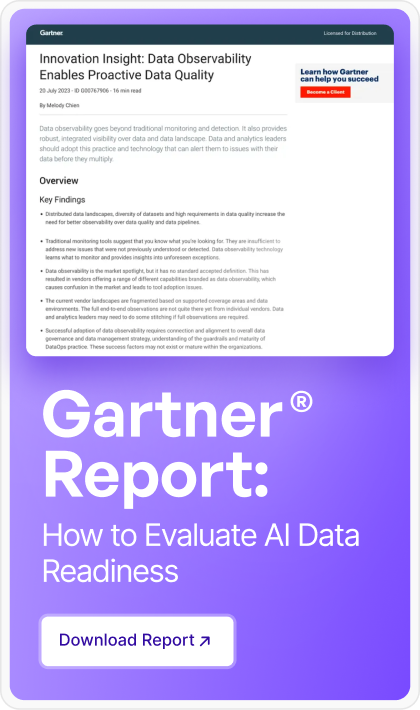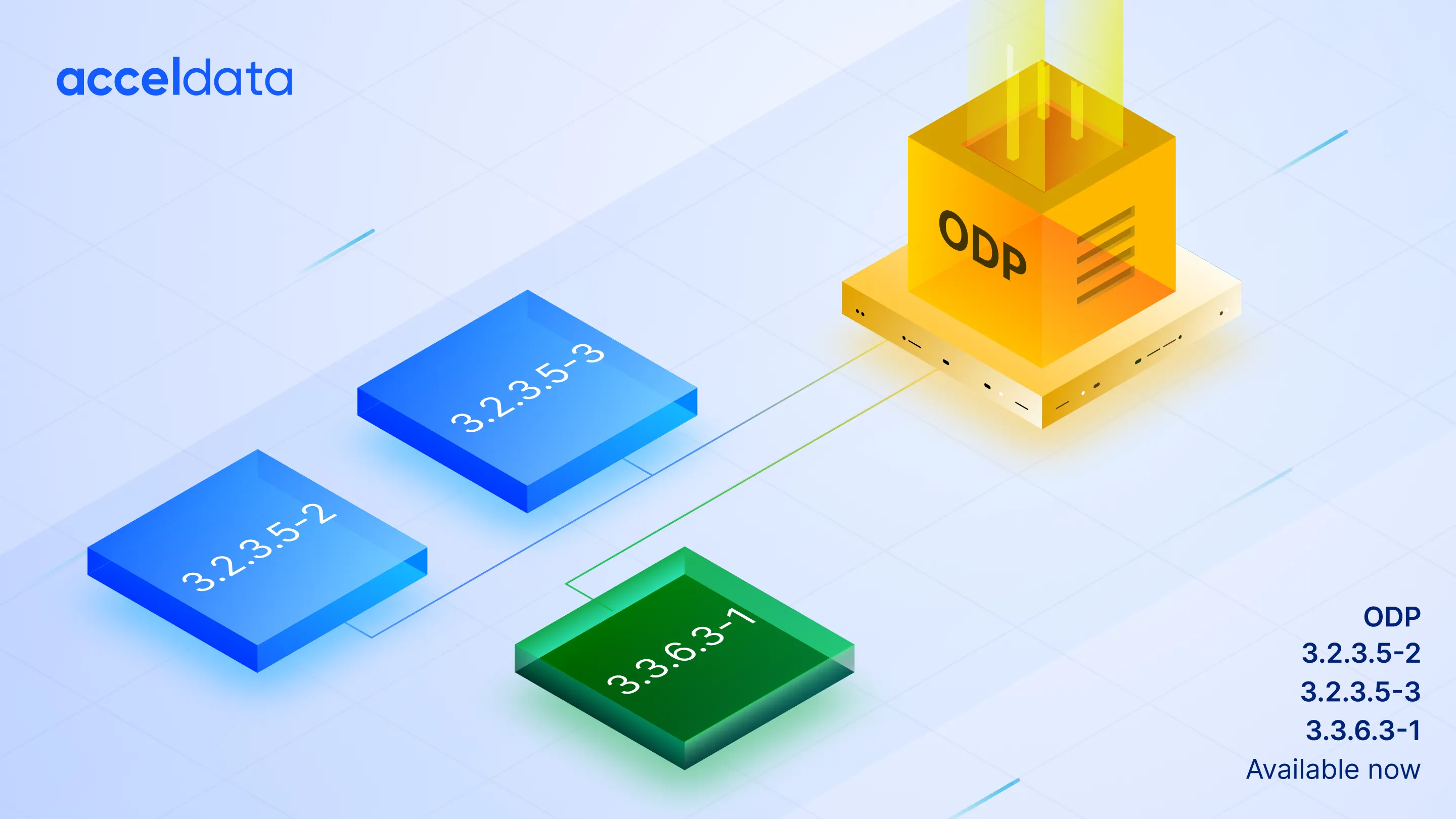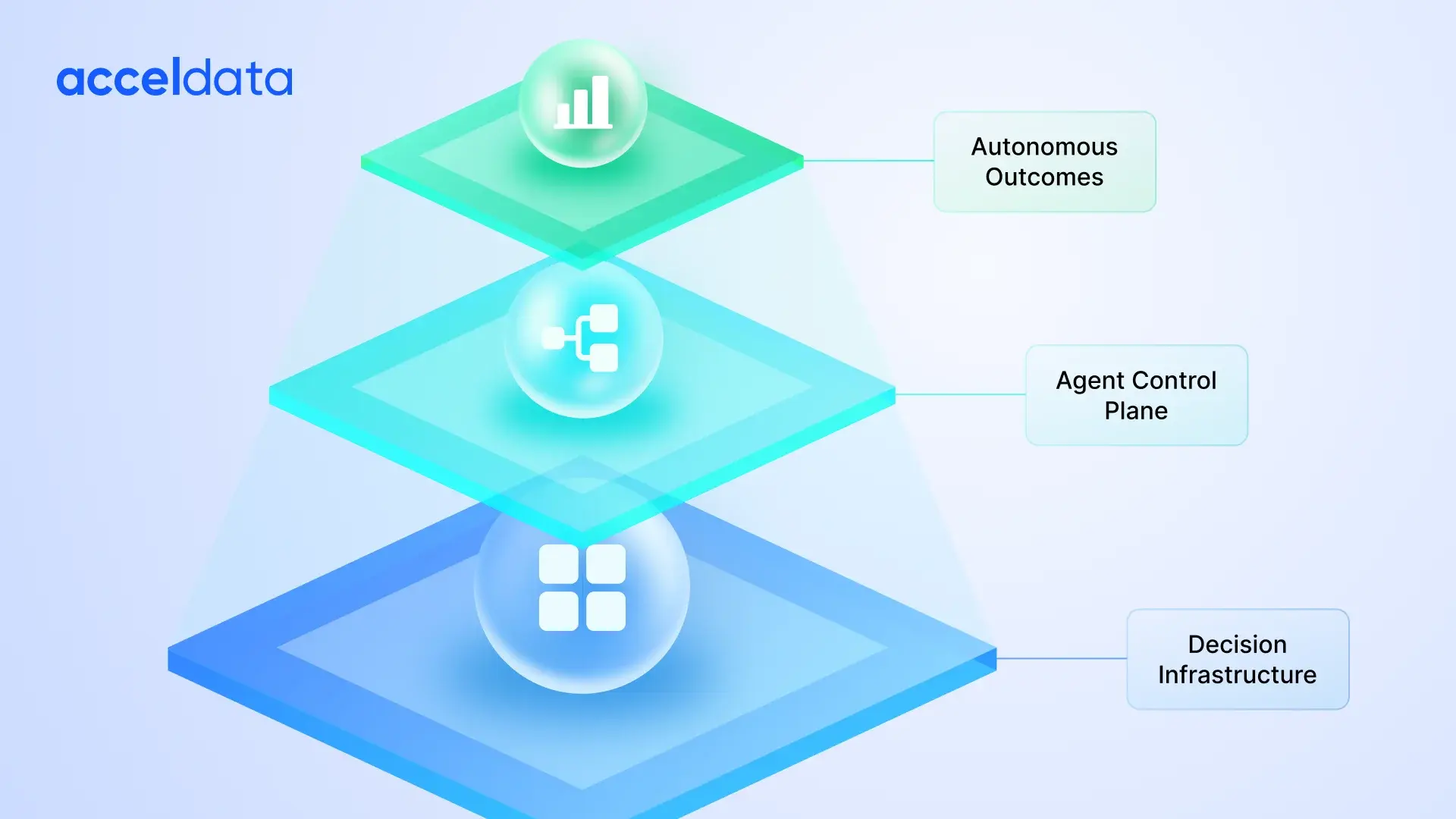Accurate data is the backbone of smart decision-making. The quality of business insights hinges on how well the data is organized, cleansed, and kept ready for action. Therefore, it is no coincidence that data professionals invest so much time in data preparation.
Poor data quality costs companies an average of $12.9 million every year. It can be a silent but significant business risk. Inaccurate or incomplete data can derail strategic decisions, lead to compliance issues, and even hurt customer trust.
Traditional data quality management methods struggle to keep pace with the constant growth in data volumes. The rise of artificial intelligence (AI) has revolutionized how organizations ensure data quality.
AI’s ability to process massive datasets, detect patterns, and automate tasks is transforming data quality management and data governance. In this article, we’ll explore how AI enhances data quality, its importance for businesses today, and actionable steps for integrating AI data governance into your data management strategy.
Importance of Data Quality Management
Data quality management is the process of ensuring that data is accurate, consistent, complete, and reliable. High-quality data enables organizations to make well-informed decisions and maintain operational efficiency. On the other hand, poor data quality can lead to costly mistakes, reduced productivity, and even regulatory penalties. Data quality governance has emerged as a core aspect of business success, as organizations have become increasingly data-reliant.
AI data quality solutions offer the potential to address these challenges more effectively than traditional methods. By leveraging machine learning and automation, AI can analyze large datasets in real time, identifying and resolving data inconsistencies, inaccuracies, and redundancies before they affect business operations.
AI vs. Traditional Data Quality: What's the Difference?
Historically, data quality management has been reliant upon manual processes and rule-based systems, which are time-consuming, prone to human error, and difficult to scale. These methods struggle to keep up with the volume, variety, and velocity of modern data, especially as businesses begin to embrace cloud and hybrid environments.
AI data quality solutions differ fundamentally. They automate data profiling, anomaly detection, and data cleansing, making these processes more efficient and scalable. Additionally, AI-driven approaches can learn from historical data, adapt to new data trends, and predict issues before they escalate.
Technologies Powering AI-Driven Data Quality
The impact of AI on data quality management stems from several key technologies. The following innovations enable companies to maintain better data quality governance and streamline their operations.
- Machine Learning (ML): Machine learning algorithms identify data patterns, detect anomalies, and automate the rectification of data errors. For example, ML can flag duplicate records or outliers and automatically update them with accurate information.
- Natural Language Processing (NLP): NLP allows AI to interpret and process unstructured data such as emails, text documents, and social media posts. This technology improves data quality governance by enabling businesses to extract meaningful information from vast amounts of unstructured data.
- AI-powered automation: Automation plays a critical role in AI data quality management. It can autonomously handle tasks such as data validation, cleansing, and deduplication, allowing human teams to focus on higher-level data strategy.
Top Benefits of Using AI for Data Quality
Before we dive into the specific strategies, it's essential to understand the broader benefits AI offers to data quality management and governance. AI does not just speed up processes; it fundamentally changes how organizations approach data quality.
- Scalability: AI-driven solutions can handle vast data sets with ease, making them scalable for businesses that continue to grow in size and data complexity.
- Increase in efficiency: AI helps automate repetitive tasks such as data cleansing, validation, and profiling, freeing up valuable human resources and accelerating workflows.
- Improvement in accuracy: Human errors in manual data management can lead to significant costs. AI-driven data quality management ensures accuracy by automatically identifying and resolving inconsistencies in real time.
- Cost reduction: AI lowers the cost of managing and maintaining high-quality data by reducing human intervention and minimizing errors.
Challenges in AI-Based Data Quality Governance
The implementation of AI data governance carries its own set of challenges. Organizations must overcome several hurdles for a smooth transition.
- Data privacy and security: Organizations must ensure that AI tools comply with data protection regulations such as GDPR. Privacy concerns become even more critical when AI processes sensitive data, such as customer information.
- AI bias: AI algorithms can sometimes display bias, which can compromise data quality governance. Companies must ensure that their AI models are transparent and unbiased to maintain data accuracy.
- Legacy system integration: Integrating AI with legacy systems can be a difficult and costly endeavor for several businesses. Compatibility issues between new AI tools and existing data infrastructure need careful consideration.
Industry Applications of AI in Data Quality Governance
AI is reshaping data quality governance across multiple industries, enhancing accuracy and operational efficiency. Organizations are leveraging AI to ensure their data is reliable, compliant, and actionable for decision-making processes. Here's how AI is transforming data quality governance across different sectors:
Finance
Financial institutions rely significantly on accurate data for compliance and decision-making. AI-driven tools in the financial sector improve data quality by identifying errors, ensuring data accuracy, and automating compliance reporting.
Leading banks are developing algorithms to detect fraud and assess loan applications by leveraging accurate, high-quality, and reliable data.
Healthcare
Healthcare organizations use AI to process large amounts of patient data, ensuring that records are accurate and up-to-date. This reduces medical errors and improves patient outcomes. Additionally, data collected from smart and wearable health devices can be assessed for quality before being stored in a database, ensuring that accurate and reliable data is available for diagnosis and further analysis.
E-commerce
In the e-commerce sector, AI enhances data quality by ensuring the accuracy of product listings, customer data, and transaction records. It also helps with the identification of fake reviews and incorrect product descriptions. Furthermore, AI helps address customer grievances by identifying the nature of the issue. This enables personalization of recommendations, detection of fraud, and streamlining of operations, thus improving the overall customer experience and driving business growth.
How AI Improves Data Quality: A Simple Breakdown
AI helps businesses improve data quality by doing the heavy lifting—automating cleaning, spotting issues, filling in gaps, and ensuring everything is consistent. Let’s break it down into the key ways AI makes data cleaner, more accurate, and easier to manage.
1. Cleans and Fixes Errors Automatically
AI can find and fix common data issues like:
- Duplicate records (e.g., "John A. Smith" vs "J. Smith")
- Missing values that would otherwise be skipped or ignored
- Inconsistent formats like different date styles or country names
Instead of doing this manually, AI tools clean and standardize data behind the scenes, saving time and improving accuracy.
2. Detects Problems in Real Time
AI doesn’t just fix issues—it can spot them as they happen. Whether it’s a sudden spike in numbers, missing fields, or out-of-place values, AI catches it early.
This kind of real-time anomaly detection helps prevent bad data from spreading into dashboards, reports, or decision-making tools.
3. Predicts and Prevents Future Data Issues
By learning from past patterns, AI can predict where things might go wrong next time. For example, if certain types of data entries frequently have errors, AI will flag them early or even fix them before they cause problems.
This proactive approach keeps the system healthy instead of always reacting after something breaks.
4. Fills in Missing Information
Instead of leaving gaps in your data, AI can intelligently guess or estimate missing values based on what it knows from the rest of the dataset.
It’s not just about guessing—it uses patterns and context to make well-informed estimates that improve the overall completeness of your data.
5. Helps with Standardization
AI makes sure that data across systems and sources uses the same format, terminology, and structure. For example, if one system says “USA,” another says “United States,” and another says “US”—AI can recognize they all mean the same thing and standardize them.
That consistency is key for reporting and analysis.
6. Makes Data Entry Smarter
AI can even help from the very beginning. During data capture, it can automatically spot errors, flag missing fields, and prevent bad data from entering the system in the first place.
This reduces cleanup time later and improves the quality right from the start.
7. Validates and Enriches Data
AI doesn’t just correct data—it can double-check it against trusted sources, like matching an address to official postal records.
It can also add helpful details by connecting your data with other relevant datasets, giving you richer insights with less manual work.
8. Scales as Your Business Grows
One of the best parts? AI-based data quality tools can easily scale with your business, handling more data without slowing down. That means you don’t need to hire more people or invest in more tools just to keep up with growing datasets.
9. Keeps You Aligned with Governance and Compliance
AI can track how data moves, enforce rules automatically, and help you stay compliant with regulations like GDPR or HIPAA—without needing to manually audit every file.
It also helps create a clear record of data changes (metadata), which improves transparency and trust across teams.
What Are the Risks of Using AI for Data Quality?
AI can be a powerful ally in improving data quality, but it’s not without its risks. When not carefully managed, AI can introduce new problems—or even amplify existing ones. Below are some of the most common challenges to watch out for.
1. AI Can Reinforce Biases in the Data
AI learns from historical data. If that data includes biases—say, favoring one customer group over another—the AI can end up making biased decisions too. This is especially risky in industries like finance, hiring, or healthcare, where fairness matters a lot.
Why it matters:
Biased AI decisions can lead to unfair outcomes, legal trouble, and long-term reputational damage.
2. Privacy and Security Concerns
AI needs lots of data to work well—and that often includes personal or sensitive information. If this data isn’t properly protected, it can expose businesses to serious privacy violations or data breaches.
Why it matters:
Even anonymized data can sometimes be reverse-engineered. Without strict safeguards, there’s a real risk of exposing customer or employee information.
3. Over-Reliance on AI and Lack of Human Oversight
As AI tools become more sophisticated, it’s easy to assume they always “know best.” But too much reliance on AI can reduce critical thinking. If the system fails, there may not be enough human expertise left to catch or fix the issue.
Why it matters:
In high-stakes fields like healthcare, finance, or supply chains, even small AI mistakes can have serious consequences if humans aren't actively supervising.
4. Poor-Quality Training Data Leads to Poor-Quality AI
You’ve probably heard the phrase “Garbage In, Garbage Out.” If the data fed into an AI model is messy, outdated, or incomplete, the model will learn from those flaws—and pass them on.
Why it matters:
Flawed training data leads to bad predictions, misleading insights, and reduced trust in your systems.
5. AI Can Introduce New Types of Errors
AI isn’t just at risk from bad data—it can also learn from incorrectly labeled data, or “overfit” to noise in the dataset. In other words, it might start recognizing patterns that don’t really matter.
Why it matters:
This makes the AI fragile and prone to making the wrong calls when faced with real-world scenarios.
6. Models Can Drift Over Time
Business environments change. Customer behavior shifts. Market conditions evolve. But if your AI models don’t keep up, their performance will drop over time—this is known as data drift or concept drift.
Why it matters:
What worked yesterday may not work tomorrow. Without regular updates, AI can start making outdated or irrelevant decisions.
7. Synthetic Data Isn’t Always Reliable
Some organizations use AI to generate synthetic data to train their models. While helpful in theory, if that data doesn’t represent reality well, the results won’t hold up in real-world use.
Why it matters:
You might get a system that performs well in testing, but fails badly when deployed.
8. Security Threats and Hacking Risks
AI systems can be targeted by hackers through methods like data poisoning or model manipulation—where attackers trick the system into making incorrect or harmful decisions.
Why it matters:
If an attacker manipulates the data or model logic, the damage could range from incorrect reports to major operational failures.
How to Reduce the Risks of AI in Data Quality
To use AI safely and effectively, organizations need to stay proactive:
- Clean and validate your data before feeding it to AI.
- Audit AI decisions regularly for bias and fairness.
- Train teams to monitor AI output and intervene when needed.
- Use explainable AI tools to better understand how decisions are made.
- Strengthen data governance with clear rules on privacy, access, and compliance.
Future Trends: Where AI and Data Quality Are Headed
AI is continuously evolving, and its role in data quality management is expected to increase significantly in the near future. Key trends in AI data quality management include:
Explainable AI
Explainable AI refers to artificial intelligence systems that are designed to make decision-making processes transparent and understandable to humans. This is essential for building trust in AI systems, especially in industries such as healthcare and finance, where decisions must be accountable and justifiable.
By making AI models more interpretable, explainable AI helps organizations ensure that data quality governance is not only automated but also trustworthy and compliant with regulations.
Explainable AI is likely to play a larger role in enhancing trust and accountability in data quality governance, as organizations increasingly demand transparency in how AI makes decisions.
AI in multi-cloud environments
AI in multi-cloud environments involves the use of AI to manage and optimize data quality across different cloud platforms and hybrid setups. Maintaining consistent data quality is becoming a challenge as businesses are increasingly operating across multiple cloud providers.
AI can automate the integration and monitoring of data across these platforms, ensuring consistency, reducing latency, and improving overall data governance across cloud systems. As organizations adopt multi-cloud or hybrid cloud environments, AI is becoming critical in managing data quality across diverse systems and platforms.
Acceldata’s Role in AI-Driven Data Observability
Acceldata's AI Copilot platform empowers businesses to customize the application of AI for data observability according to their specific technical needs and objectives. It enables anomaly detection, cost control, and forecasting, along with fine-tuned control over AI deployment at the individual asset level. This ensures that business context, regulatory standards, and the right mix of human oversight and AI automation are maintained. This flexibility allows organizations to align AI-driven insights with their operational goals while safeguarding compliance and accuracy.
How Businesses Should Prepare for AI in Data Quality
Preparing your business for AI-driven data quality isn't just about adopting the latest technology—it's about laying a strong foundation that combines clean data, solid governance, and a culture that embraces change. Here's a step-by-step guide to help enterprises get ready.
1. Start with a Data Quality Audit
Why it matters: You can't improve what you haven't measured. The first step in preparing for AI is understanding the current state of your data.
What to do:
- Evaluate your data’s accuracy, completeness, consistency, and timeliness.
- Identify the most critical datasets that support business decisions or AI models.
- Note gaps, inconsistencies, and common errors that could affect AI performance.
Benefit: This gives you a clear picture of where you stand and what needs fixing before introducing automation.
2. Clean and Standardize Your Data
Why it matters: AI is only as good as the data it learns from. If your data is messy, your AI outputs will be too.
What to do:
- Remove duplicate records and correct formatting inconsistencies.
- Standardize naming conventions, date formats, and measurement units.
- Fill in missing data or remove incomplete records where appropriate.
Benefit: Clean, standardized data makes it easier for AI to identify patterns and deliver trustworthy insights.
3. Centralize and Integrate Your Data
Why it matters: AI works best when it has access to consistent and connected data. Siloed systems create blind spots.
What to do:
- Break down barriers between departments and tools.
- Move toward unified data storage, like a data lake or warehouse.
- Use integration tools or APIs to connect your data sources.
Benefit: Centralized data allows AI systems to work across your business more effectively—leading to faster, more accurate outcomes.
4. Strengthen Data Governance Practices
Why it matters: AI systems need guardrails. Clear governance ensures data is used responsibly and stays high-quality over time.
What to do:
- Define ownership: Who is responsible for what data?
- Set policies for data access, updates, and validation.
- Monitor lineage: Know where your data comes from and how it changes.
Benefit: Good governance ensures your AI remains compliant, trustworthy, and aligned with business goals.
5. Build a Culture That’s Ready for AI
Why it matters: AI isn't just a tech upgrade—it changes how teams work. People need to feel confident using it.
What to do:
- Educate employees on the importance of data quality and how AI will support their roles.
- Encourage collaboration between business teams and data professionals.
- Promote data literacy through training and internal resources.
Benefit: When your people understand and trust AI, they’re more likely to use it effectively—and spot problems before they scale.
6. Start Small with Pilot Projects
Why it matters: AI adoption works best when it's gradual and measured. Starting small helps build momentum and trust.
What to do:
- Choose one or two use cases with clear business value—like anomaly detection or automated validation.
- Monitor results and gather feedback from users.
- Use these learnings to inform broader rollout.
Benefit: Pilot projects offer quick wins and reduce the risk of large-scale failure.
7. Monitor Data Quality Continuously
Why it matters: Data quality isn't a “set-it-and-forget-it” task—especially when AI is involved. Things can change fast.
What to do:
- Use dashboards or observability tools to track quality metrics in real time.
- Set alerts for anomalies, missing fields, or format mismatches.
- Regularly review and refine your AI models based on new data trends.
Benefit: Continuous monitoring helps you stay ahead of issues and ensure AI stays effective as your data evolves.
8. Invest in Tools and Skills That Scale
Why it matters: To make AI sustainable, your tools and teams must grow with your business.
What to do:
- Choose platforms that support automation, integration, and scalability.
- Upskill your data team in AI basics and tools like data validation engines, lineage trackers, and observability platforms.
- Work with vendors or partners who understand both your data and your business.
Benefit: Having the right ecosystem means your AI projects don’t stall as your needs expand.
How Acceldata Helps Enterprises Tackle Data Quality Challenges with Agentic AI
Data teams in large organizations face a tough balancing act—scaling operations, ensuring trust in data, and minimizing downtime, all while dealing with increasingly fragmented systems. Acceldata’s Agentic AI platform is designed to step into this gap by offering intelligent, context-aware support that helps data teams stay ahead of quality issues before they spiral out of control.
Here’s how Acceldata delivers practical, everyday value for enterprise data teams through Agentic AI:
1. Proactively Detects and Fixes Data Quality Issues
Why it matters: Most data issues go unnoticed until they impact reporting or decision-making. By then, it’s often too late.
What Acceldata does:
- Uses AI agents to automatically detect anomalies in real-time across pipelines and datasets.
- Identifies the root cause of issues—whether they stem from broken transformations, schema changes, or unexpected nulls.
- Suggests corrective actions or takes automated steps to contain the issue before it spreads.
The result: Less firefighting, faster recovery times, and more confidence in your data pipelines.
2. Reduces Manual Data Cleansing and Rework
Why it matters: Data engineers and analysts spend too much time on repetitive tasks like deduplication, formatting, or backfilling values.
What Acceldata does:
- Learns patterns from historical data to automatically flag and fix issues like missing values or inconsistent formats.
- Applies intelligent normalization to ensure naming standards and schema consistency across sources.
- Continuously improves through feedback, getting smarter with every correction.
The result: More time for high-impact work—less time spent fixing the same issues again and again.
3. Enhances Visibility Across Complex Data Environments
Why it matters: In today’s hybrid, multi-tool environments, a small error in one system can break downstream workflows.
What Acceldata does:
- Provides a unified, end-to-end view of your data pipelines, including dependencies and lineage.
- Shows where a quality issue started, how it spread, and who is impacted.
- Aligns data quality metrics with business outcomes, so teams can prioritize what matters most.
The result: Better cross-team coordination and fewer surprises in production.
4. Supports Governance, Privacy, and Compliance
Why it matters: AI initiatives can easily run afoul of compliance rules if data is incomplete, outdated, or improperly classified.
What Acceldata does:
- Automatically tags and tracks sensitive data to help meet compliance needs like GDPR or HIPAA.
- Ensures data quality checks align with internal governance policies and external regulations.
- Helps monitor access patterns and ensure the right teams have the right level of oversight.
The result: Fewer audit risks and stronger trust in your data infrastructure.
5. Scales as Your Data Grows—Without Slowing You Down
Why it matters: The more your data grows, the harder it is to maintain quality at scale without burning out your team.
What Acceldata does:
- Handles large, distributed datasets and complex workflows across tools and platforms.
- AI agents adapt to new data patterns, automating more over time without constant reprogramming.
- Helps prioritize efforts based on system usage, business impact, and performance bottlenecks.
The result: Sustainable, future-ready data operations that grow with your business.
Ready to Solve Real Data Quality Problems with AI?
If you’re tired of band-aid fixes, endless rework, or uncertainty in your data, it might be time to see what intelligent, goal-driven systems can actually do for your team.
👉 Book your personalized demo today and see how Acceldata’s Agentic AI platform can help your team stay one step ahead—without the stress.
Summary
AI is significantly transforming data quality management through its applications in automation, real-time monitoring, and predictive data quality enhancement. Given its numerous benefits, including enhanced accuracy, improved efficiency, and the ability to automate complex processes, AI is likely to play a key role in the future of data quality management.
Frequently Asked Questions (FAQs)
1. What is data quality management, and why is it important?
Data quality management is the process of ensuring your data is:
- Accurate
- Complete
- Consistent
- Reliable
It’s important because poor-quality data can lead to:
- Wrong decisions
- Compliance risks
- Loss of customer trust
- High operational costs
2. How does poor data quality impact business performance?
When your data isn’t accurate or up-to-date, it can cause:
- Missed business opportunities
- Increased customer churn due to bad experiences
- Failed marketing or sales campaigns
- Errors in compliance reports or audits
3. How can AI improve data quality management?
AI can enhance your data quality efforts by:
- Automating data validation and cleansing
- Detecting errors and anomalies in real time
- Predicting data issues before they escalate
- Reducing the need for manual intervention
4. What are the key benefits of using AI for data quality?
Using AI for data quality management brings:
- Faster data cleanup with less effort
- Scalable solutions for large data volumes
- Higher accuracy and reduced errors
- Lower costs from fewer manual tasks
5. Can AI replace manual data quality checks?
AI doesn’t replace human checks—it enhances them:
- Automates routine and repetitive tasks
- Flags issues for human review
- Frees up teams to focus on strategy and value creation
6. What industries benefit most from AI-driven data quality?
AI-driven data quality tools are especially valuable in:
- Finance (for fraud detection and compliance)
- Healthcare (for accurate patient data)
- Retail and e-commerce (for better customer data)
- Manufacturing (for quality control and reporting)
7. What challenges should I expect when implementing AI for data quality?
Common challenges include:
- Integrating AI with legacy systems
- Ensuring data privacy and security
- Managing AI bias and transparency
- Building trust in AI-driven decisions
8. How do I choose the right AI data quality tool for my business?
Before choosing a solution, ask:
- Does it work with our current systems?
- Can it scale as our data grows?
- Does it support real-time monitoring?
- How easy is it for teams to use and maintain?
9. How does Acceldata support AI-powered data quality management?
Acceldata helps businesses:
- Detect and fix data issues in real time
- Monitor pipeline health and performance
- Automate data observability with AI agents
- Ensure data is always trustworthy and ready for use
10. Why is Acceldata a good fit for enterprise data teams?
Acceldata stands out because it:
- Supports modern, hybrid data environments
- Offers agentic AI for self-healing and proactive monitoring
- Provides clear visibility into data quality, cost, and performance
- Helps teams focus less on firefighting and more on innovation








.png)








.webp)
.webp)


